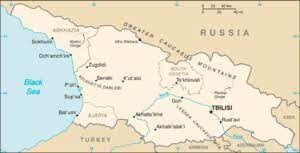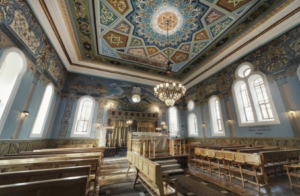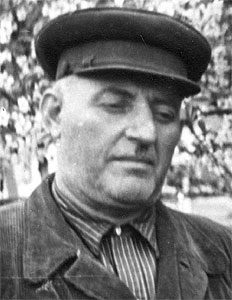 Jewish people have been living in Georgia for centuries. From the Middle Ages through the 1850, Jews were considered serfs. They were eventually deprived of their property and oppressed but were not forced to convert to Christianity. Georgian annexation by the Russian Empire in 1801 ended previous centuries’ of toleration and fanned antisemitism.
Jewish people have been living in Georgia for centuries. From the Middle Ages through the 1850, Jews were considered serfs. They were eventually deprived of their property and oppressed but were not forced to convert to Christianity. Georgian annexation by the Russian Empire in 1801 ended previous centuries’ of toleration and fanned antisemitism.
After the Revolution of 1905, many Georgian Jews attempted to separate themselves from Russian Jews and reiterate their loyalty to the Tsar. It was only after Georgia declared its independence in 1918, following the Russian revolution and establishment of the Bolshevik regime, that the living and economic situation of Georgian Jews improved. However, the Soviet Union invaded Georgia in 1921, and a large number of Jews fled the region for Palestine. After reconquering the region, Soviet authorities allowed Georgian Jews to continue practicing Jewish religious and cultural life, but soon prohibited all Zionist activities and heavily impeded, and discriminated against, Georgian Jews following a Georgian rebellion in 1924.
 Blood libels continued at an increasing rate and Jewish life was devastated under Soviet actions. This continued in the 1930s, as the already desperate economic and political situation of Georgian Jews was exacerbated by further suppression. Soviet authorities arrested and murdered a large number of Jewish activists and Zionist leaders, and completely shut down Jewish religious life in the country.
Blood libels continued at an increasing rate and Jewish life was devastated under Soviet actions. This continued in the 1930s, as the already desperate economic and political situation of Georgian Jews was exacerbated by further suppression. Soviet authorities arrested and murdered a large number of Jewish activists and Zionist leaders, and completely shut down Jewish religious life in the country.
During WWII, thousands of Georgian Jews fought in the Soviet Army yet after the war, persecution of the Jews of Georgia by the Soviet authorities continued with many arrests. Synagogues were closed or destroyed.
 Sergey Metreveli and Ivan Gugeshashvili were wine producers in Kislovodsk, a town in the northern Caucasus. At the end of August 1942, as the German forces were approaching the town, the two men evacuated Jews and other people known as Communists, in order to save them from the Germans.
Sergey Metreveli and Ivan Gugeshashvili were wine producers in Kislovodsk, a town in the northern Caucasus. At the end of August 1942, as the German forces were approaching the town, the two men evacuated Jews and other people known as Communists, in order to save them from the Germans.
Blood libels continued with incidents in Tzkhaltubo in 1963, Zestafoni in 1964, and Kutaisi in 1965. But despite their attempts, the Soviets could not completely annihilate the practice of Judaism and, even in the late 1960s and 1970s, most Georgian Jews managed to observe their traditions. Georgian Jews were able to preserve their identity better than other Jews in the Soviet Union.
Mass emigration to Israel of about 30,000 Georgian Jews, took place in the 1970s when Soviets permitted this. Further Georgian Jews emigrated to Israel en masse after Mikhail Gorbachov opened the borders of the USSR in the 1980s. Georgians immigrated as whole communities, with emigration of individuals causing a chain reaction leading to more emigration, and brought their community structures with them.
 In 1990 the Rachamim Society was founded to provide financial and medical support to needy Jews in Tbilisi, even heating fuel and hot kosher meals. A Jewish Day School, a high school was established in 1990, and a Beth Midrash for adults also opened. In 1998, an Academy for Jewish Studies was established. The Jews of Tbilisi can now pray at the Georgian Synagogue formerly confiscated by the USSR in 1923 or two Ashkenazy synagogues on Kozeveny Street.
In 1990 the Rachamim Society was founded to provide financial and medical support to needy Jews in Tbilisi, even heating fuel and hot kosher meals. A Jewish Day School, a high school was established in 1990, and a Beth Midrash for adults also opened. In 1998, an Academy for Jewish Studies was established. The Jews of Tbilisi can now pray at the Georgian Synagogue formerly confiscated by the USSR in 1923 or two Ashkenazy synagogues on Kozeveny Street.
During the 2000’s, as a result of mass migration, Jewish life almost disappeared in most of Georgian towns and cities, except in Tbilisi, where few thousands of Jews are still living. In Kutaisi, Georgia’s second city, only 220 Jewish people are left, with smaller numbers in Oni, and Batum. There are currently less than 3,000 Jews in all of Georgia.